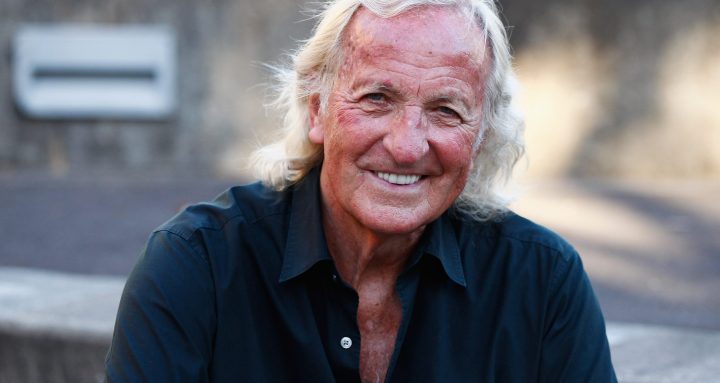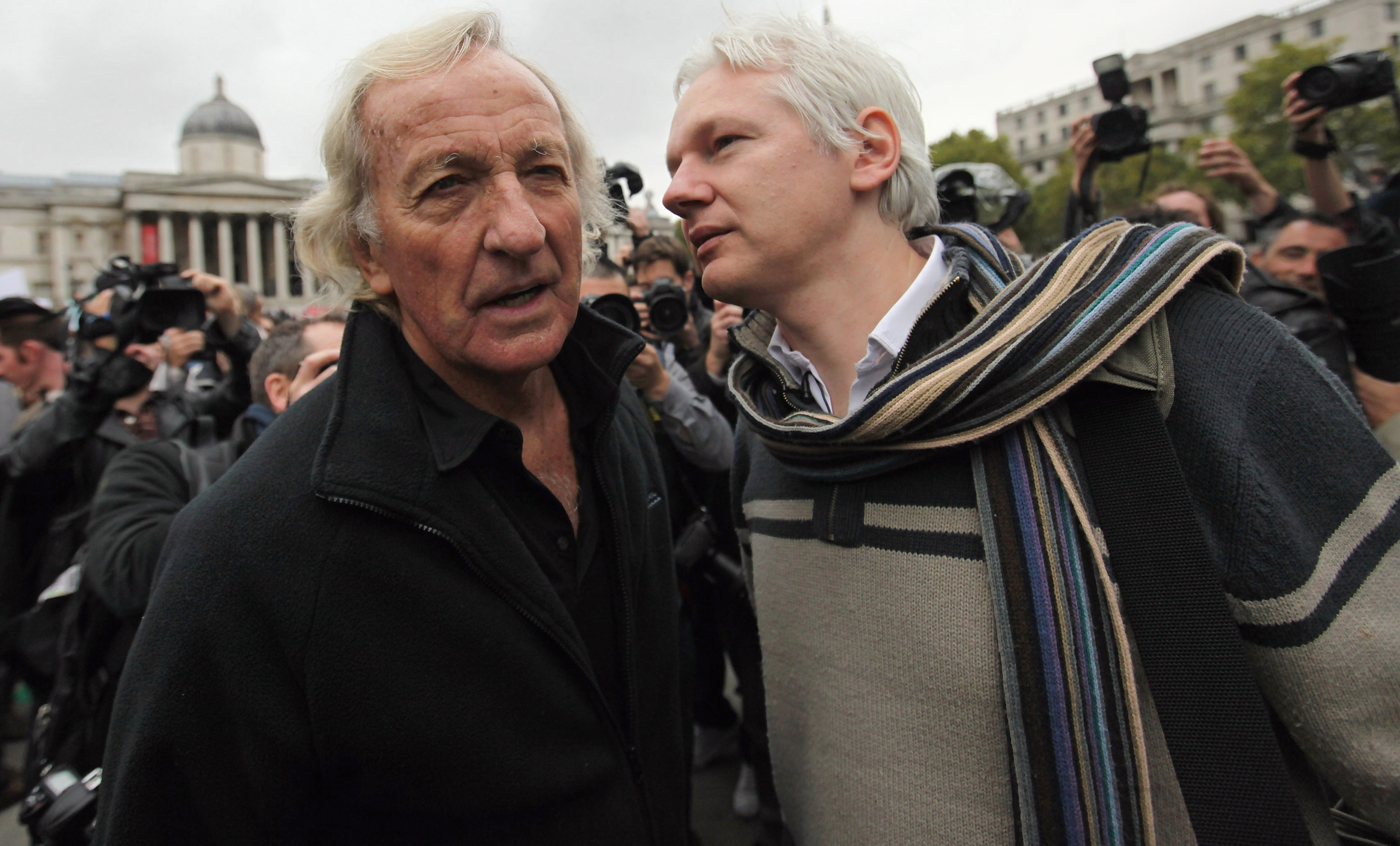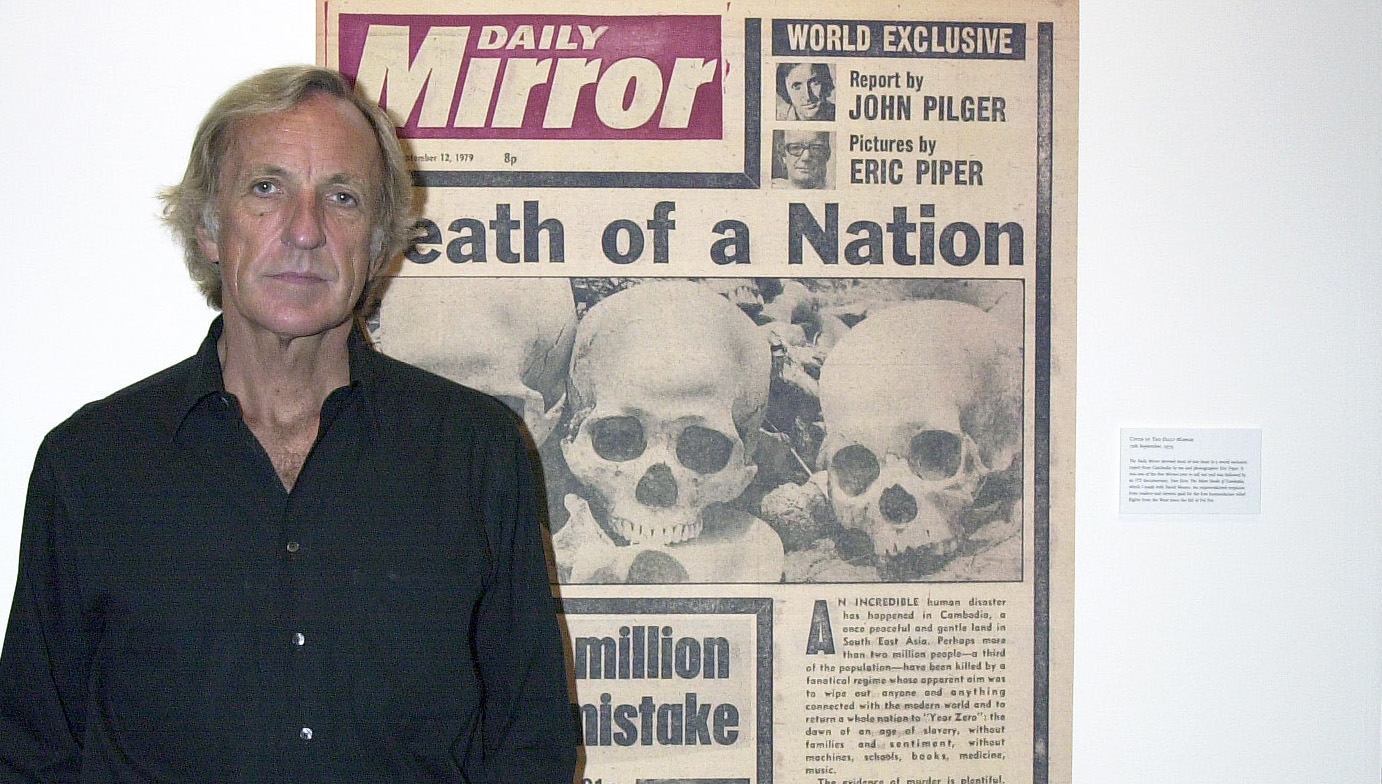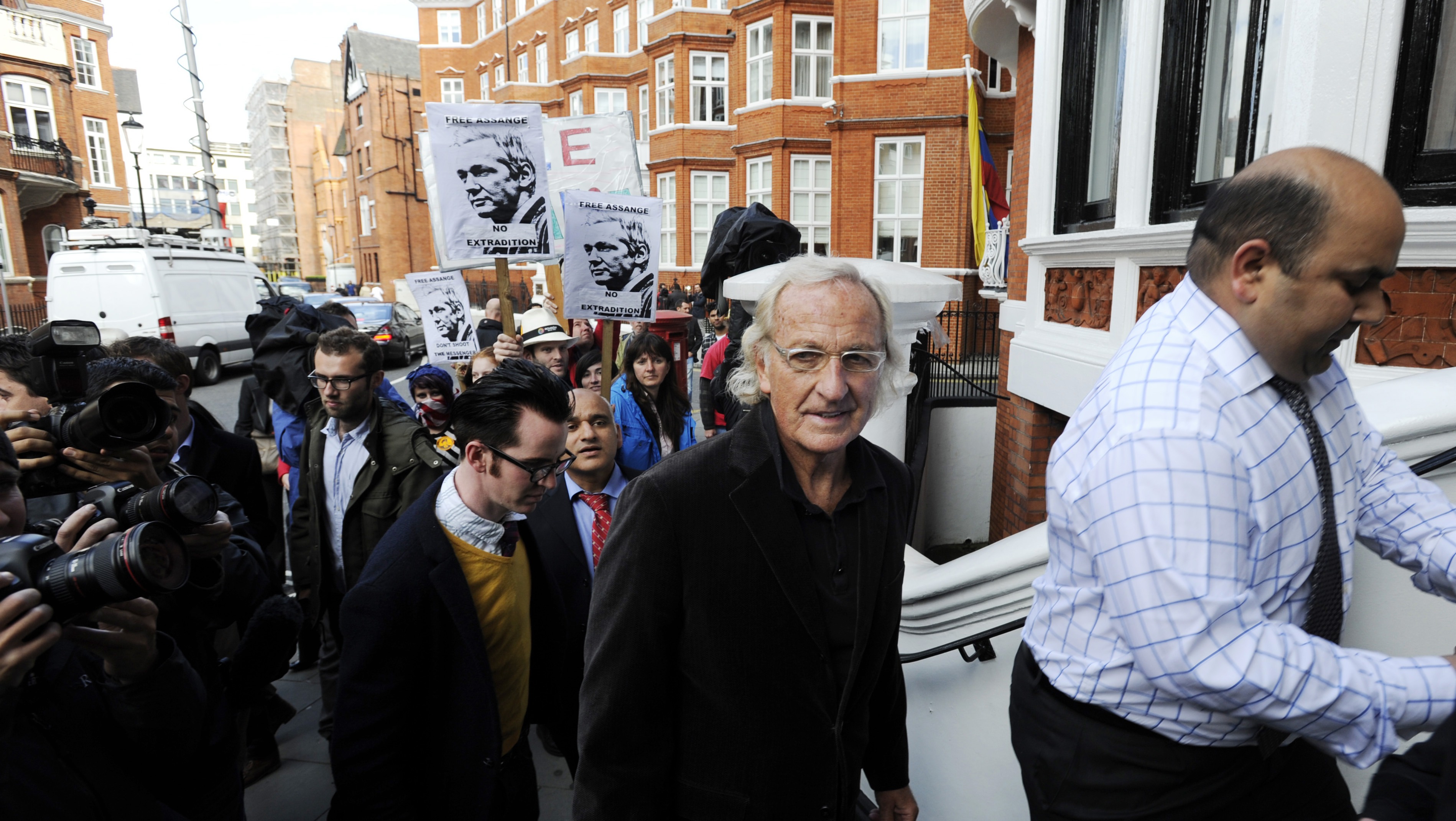TRIBUTE
John Pilger (1939-2023): His films and writing renewed our sense of indignity and our instincts for justice

Journalist John Pilger on apartheid and post-apartheid injustices: ‘South Africa is where much of my political education took place’
John Pilger, who died in London on 30 December at the age of 84, was a unique journalist, equipped with the combination of moral outrage, relentless sleuthing and unparalleled interviewing skills required to understand South Africa’s deep structural injustices.
Setting aside all the scoops and awards elsewhere, no one else but Pilger could have periodically parachuted into this country – first in 1967 when he was banned by the apartheid government, and then again in 2017 – and then squeeze that half-century of dramatic turmoil into a hard-hitting film, Apartheid Did Not Die, plus a dozen influential articles and book chapters.

Journalist John Pilger (left) and Julian Assange, founder of the WikiLeaks website, chat before addressing the crowd during the ‘Antiwar Mass Assembly’ organised by the Stop the War Coalition at Trafalgar Square on 8 October 2011 in London. The demonstration called for the British government to immediately withdraw troops from Afghanistan. (Photo: Oli Scarff / Getty Images)
Above all, the Australian represented a chronicler of what can be considered the independent-left critique; one who connected the dots – from imperialism to local power relations to suffering individuals – with passion and eloquence. No one was spared his savage pen.
Pilger wrote in 2013:
“In 2001, George Soros told the Davos Economic Forum, ‘South Africa is in the hands of international capital’… This led directly to state crimes such as the massacre of 34 miners at Marikana in 2012, which evoked the infamous Sharpeville massacre more than half a century earlier. Both had been protests about injustice. Nelson Mandela, too, fostered crony relationships with wealthy whites from the corporate world, including those who had profited from apartheid.”
There were three distinct phases of his work here, resulting in scores of references to South African injustice peppering many of his other international observations – including about Israel’s version of apartheid in his 2002 film, Palestine is Still the Issue.
In the first phase, during apartheid, Pilger’s book Heroes (1986) contains a long chapter covering the gritty realities he encountered in 1967 before he was banned by Pretoria from visiting again.
In the second, after returning in 1995, Pilger was aghast at post-apartheid triumphalism, which meant his 1998 film, Apartheid Did Not Die, was received with outrage by old and new elite alike.
Pilger asked Nelson Mandela what were possibly the toughest ethical and practical questions about the new system the president ever received.
Likewise, debating FW de Klerk, Pilger was equally forthright:
“Didn’t you and your fellow white supremacists really win?”
It was as if a secret truth had been put to him. Waving away the smoke of an ever-present cigarette, he said: “It is true that our lives have not fundamentally changed. We can still go to the cricket at Newlands and watch the rugby. We are doing okay.”
“For the majority, the poverty has not changed, has it?” I said.
Warming to this implied criticism of the ANC, he agreed that his most enduring achievement was to have handed on his regime’s economic policies, including the same corporate brotherhood.
“You must understand, we’ve achieved a broad consensus on many things now.”
Pilger’s mix of hectoring and charm compelled the likes of Anglo American spokesperson Michael Spicer, real estate mogul Pam Golding and fashion trendsetter Edith Venter to reveal similar white-greed truths. I’ve been reliably told that Spicer’s team would later show the film to the firm’s management trainees, providing an example of what not to do in an interview.

Australian journalist John Pilger attends an exhibition titled ‘John Pilger: Reporting The World’ featuring work by various reportage photographers at the Barbican Art Gallery in London on 31 July 2001. (Photo: Peter Carrette Archive / Getty Images)
Famed liberal journalist Allister Sparks headed the SABC’s current affairs division in 1998 and was incensed at what he saw as Pilger’s distortions due to “reliance mainly on fringe sources and disaffected people” (such as community activist Mzwanele Mayekiso and lawyer Richard Spoor).
Pilger rebutted Sparks in the Mail & Guardian, “The film’s primary source is Mandela himself, who reveals just how much he has changed his views.” The national broadcaster, he went on, “having bought the South African rights to my film, sought first to ban it, then to muffle it.
“Sparks’ explanation for this has a Kafkaesque tone similar to Cold War tracts denouncing journalists, writers and playwrights who begged to differ with the regime in the Eastern bloc. He describes me as ‘a man with an ideological mission’.”
Pilger had previously written admiringly of Sparks’ bravery as a journalist reformer but now complained: “Inexplicably, my ideological masters and the colour of my party card are never identified, no doubt because it would be too truthful to point out that I have never allied myself with any political group. Indeed, I have always been intensely proud of my independence.”
In a third phase of his engagement, Pilger continued to provoke the elite, especially when – after his book Freedom Next Time was published in 2006 and excerpted here – Thabo Mbeki’s finance minister Trevor Manuel and minister in the presidency Joel Netshitenzhe were enraged. The Sunday Independent was the site of a fierce battle over whether progress was really being made.

Broadcaster and journalist John Pilger (second right) arrives at the Ecuadorian embassy where Wikileaks founder Julian Assange sought political asylum in London on 22 June 2012. (Photo: EPA / Facundo Arrizabalaga)
In his essay, “ANC government has yet to free citizens from the fear of poverty,” Pilger wrote of the “arrogance that comes from undisputed power, which is the conundrum of South African political life – that the vote has given the nation democracy in many ways, but the price has been effectively a one-party state.”
Pilger’s last event here was the inaugural Abdulhay Ahmed Saloojee Memorial Trust lecture just over six years ago, titled: “South Africa: how a nation was misled and became a model for the world, and how the people can rise again.”
He declared, “South Africa is where much of my political education took place,” and concluded, “What makes South Africa so interesting and so hopeful and probably unique is because there are so many grassroots popular movements.”
In 2008, poet Dennis Brutus, journalist Ferial Haffajee and I hosted Pilger at the Time of the Writer conference in Durban, just after an epic Pilger film fest at the University of KwaZulu-Natal (all his works are online).
Within 20 months, Brutus had passed on, leaving Pilger to lament, “I was so honoured to meet Dennis last year, finally. He was a giant of a human being who changed the world in so many ways. His tenacious humanity inspired so many to go on and not let the bastards win in the long run.”
As can be testified by so many who met him here – or learnt about our realities from him – Pilger deserves the same tribute, as his films and writing renew our sense of indignity and our instincts for justice. DM



















 Become an Insider
Become an Insider
Comments - Please login in order to comment.